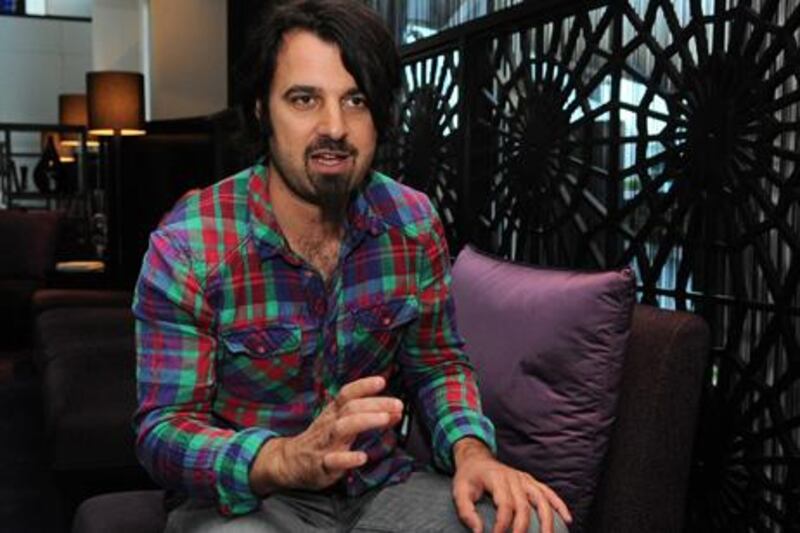Since March, for just a few hours every Thursday, a group of students in Gaza has been able to break the Israeli blockade of the Palestinian territory that has been in place since 2007. Their tools haven't been boats or tunnels, or anything that can be intercepted at the border, but technology.
Through Skype, this group of eight between the ages of 18 and 21 have been taking part in a filmmaking programme, with lectures and workshops that would normally be experienced face-to-face in a classroom instead given through a computer screen. The project, organised by the Doha Film Institute in co-operation with Al Fakhoora, an international organisation helping provide educational facilities and rights to Palestinian students, will give the students the knowledge and resources to shoot two short films, and should help establish an educational programme that will see many more follow in their footsteps.
"It's very challenging," admits Scandar Copti, the head of DFI Education and the course mentor. "I've already given a lot of lectures through Skype, but I've never had a workshop before."
Despite the logistical difficulties of creating a group dynamic when you're looking at your students on a monitor, Copti says the programme is extremely important. "These people are under siege, they cannot leave, cannot come to Qatar." DFI gives grants to students to come and participate in its courses in Doha, but the blockade prevents any Palestinian from leaving Gaza. "And I cannot go there to teach them. So it has to be over Skype, which is basically breaking the siege as they're now able to connect to the outer world and express themselves."
For the past two months, the class - which includes medical school students, English literature students and engineers - has been putting together two separate scripts for three to five-minute films that aim to show very personal stories about their lives in Gaza. "We're going to work only on fictional stories," says Copti. "It's very important to fictionalise the situation in which you're living and put life and characters that you create in order to let others identify with them. These are stories the people know and people have lived, and affect them in their personal life."
Professionally produced documentaries about Gaza are already widely available. Death in Gaza, which focused on three Palestinian children living through the conflict, picked up an Emmy in 2004, while other documentaries such as To Shoot an Elephant, which followed an ambulance during Israel's 2008-2009 Operation Cast Lead assault, have received critical acclaim.
"You can watch documentaries about Gaza everywhere," says Abdullah El Khoudary, who is also a Gaza student representative for Al Fakhoora. "But a film that sends a message behind the scenario is not available."
Of the two films, the one El Khoudary is working on talks about the matter of obtaining a Palestinian identification card, which he says is a difficult process that can take one to two months. "I'm choosing to tell this message to the world, but through this message we're sending a lot of other messages about Gaza."
And in a relatively short time, El Khoudary has already noticed a sizeable improvement in his filmmaking skills. "If I read the sort of scenarios I was writing at the start of the course, compared with what we've got now, there's a huge difference. I can now say that I can write a good scenario."
As might be expected working somewhere under siege, timetables have had to be altered to get around the situation. The programme was originally supposed to consist of 10 weekly meetings, beginning with scriptwriting, moving on to actual filming and then talking through the editing process, which Copti admits will be an interesting task through Skype. But getting the equipment into Gaza took longer than anticipated, so an additional couple of scriptwriting lessons were hastily added.
When it all eventually arrives, the equipment will consist of HD cameras professional enough for TV broadcasting, plus microphones, speakers and high-speed laptops, all provided by Al Fakhoora, with assistance from the United Nations Development Programme in Palestine. "We're going to be getting a fully prepared lab for producing the films," says El Khoudary.
With the equipment in place, the idea is to build a platform to repeat the project several times in a year, with new groups of students, new ideas of self-expression and new output. "We want to eventually create this community of people who express themselves through video," says Copti.
But it's not all about simply producing the films. To get their message beyond the blockade wall, there needs to be somewhere for the films to go to reach an international audience. In this case, the internet will be utilised again, with both films available for viewing on both DFI and Al Fakhoora's websites, and undoubtedly on the students' Facebook pages.
"To tell you the truth," says Copti. "We're not doing this because we're looking for an end product that is amazingly good. The process is what's important here and the idea behind this whole workshop; the breaking of the siege with those people, making their words and their films heard out of Gaza."





